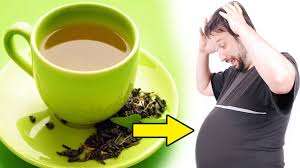For years, green tea has been hailed as a health-boosting powerhouse, with benefits ranging from improving heart health to reducing the risk of certain cancers.
But one of the most interesting and widely researched aspects of green tea is its role in boosting metabolism and aiding in weight loss.
In fact, green tea extract has become a popular supplement for those looking to tackle obesity through natural means.
But how exactly does green tea extract work to increase metabolism, and how does it contribute to obesity treatment?
Let’s explore this in detail.
Points Covered in this Article:
- The Connection Between Green Tea and Metabolism
- Understanding Metabolism and Its Role in Obesity
- How Green Tea Extract Boosts Metabolism: The Science Behind It
- Catechins and Caffeine: The Dynamic Duo
- The Thermogenic Effect of Green Tea Extract
- Scientific Evidence Supporting Green Tea’s Role in Weight Loss
- Daily Life Examples: Incorporating Green Tea for Metabolism Boost
- Matcha vs. Regular Green Tea: Which is Better for Metabolism?
- FAQs on Green Tea Extract for Treating Obesity
- Potential Side Effects and Considerations of Green Tea Extract
- The Role of Green Tea Extract in Treating Obesity
The Connection Between Green Tea and Metabolism
I have been on a personal journey to find natural ways to boost my metabolism and lose a few extra pounds. After trying various “magic” low carb diets and supplements, I came across green tea extract.
What drew me in was not just the promise of a cup of tea that promotes weight loss, but actual scientific studies backing up the claims.
From my own experience, I have seen improvements in energy and metabolism, and I wanted to dive deeper into why and how green tea extract works.
Let’s begin by understanding metabolism and how it relates to weight management, especially in the context of obesity.
Understanding Metabolism and Its Role in Obesity
Metabolism refers to the process by which your body converts food and drink into energy.
Even at rest, your body needs energy for breathing, circulating blood, and repairing cells.
The number of calories your body burns just to maintain basic functions is called your basal metabolic rate (BMR).
For people with obesity, their metabolism might not function as efficiently as it should. Metabolic dysfunction can make it difficult to burn calories, leading to weight gain or difficulty losing weight.
This is where green tea extract enters the conversation—it offers a natural way to boost metabolism and aid in obesity treatment.
How Green Tea Extract Boosts Metabolism: The Science Behind It?
Let me walk you through some research done on this topic:
Catechins and Caffeine: The Dynamic Duo:
One of the most active compounds in green tea extract is a catechin called epigallocatechin gallate (EGCG). Catechins are antioxidants that have been shown to have a direct impact on increasing metabolic rates.
When combined with caffeine, the effects are even more pronounced.
According to a study published in The American Journal of Clinical Nutrition, the combination of caffeine and EGCG from green tea can increase energy expenditure by about 4%.
This means that your body burns more calories during the day, even while at rest.
The study concluded that regular consumption of green tea could help promote fat oxidation, the process where fat is broken down for energy.
The Thermogenic Effect of Green Tea Extract:
The thermogenic effect of green tea extract is like having a tiny, internal furnace that helps you burn extra calories throughout the day.
This process, where your body generates heat, burns calories even when you are doing basic activities like typing an email or binge-watching your favorite series.
Green tea extract, loaded with catechins like EGCG (epigallocatechin gallate) and a mild dose of caffeine, revs up your metabolism.
Imagine sipping on a cup of green tea before your workout; it is like adding kindling to a fire! Studies show that green tea can increase your calorie burn by 3-4% throughout the day.
That may not sound huge, but over time, it adds up—just like those sneaky extra fries!
One fun example?
Pair it with a brisk walk or light exercise. Your body becomes a calorie-burning machine, working harder without you even realizing it. Green tea becomes the “best tea to boost metabolism“ naturally, turning your everyday activities into mini workouts.

Scientific Evidence Supporting Green Tea’s Role in Weight Loss
Several clinical studies back the claim that green tea improves metabolism.
For instance, a meta-analysis published in the International Journal of Obesity reviewed multiple trials and found that catechins, especially EGCG, play a significant role in increasing calorie burn and promoting fat loss.
Another study by Obesity Research indicated that green tea extract led to a 17% increase in fat burning during moderate exercise (such as hiking trails or Pilates sculpt for developing lean muscle mass).
This makes it an excellent tea to speed up metabolism when incorporated into your daily routine, especially for those trying to lose weight through physical activity.
Daily Life Examples: Incorporating Green Tea for Metabolism Boost
Incorporating green tea into your daily routine is like adding a Swiss Army knife to your wellness arsenal—versatile, beneficial, and surprisingly easy to use.
Here is how you can seamlessly blend this ancient elixir into your modern lifestyle:
Morning Kickstart:
Swap your usual morning brew for a cup of matcha green tea. This vibrant green powder is not just Instagram-worthy; it is packed with catechins, particularly epigallocatechin gallate (EGCG), which are potent antioxidants. While the jury is still out on some health claims, sipping matcha can be a delightful way to start your day.
Midday Recharge:
When the afternoon slump hits, resist the siren call of that extra coffee. Instead, opt for green tea. It offers a gentler caffeine lift, helping to sustain your energy levels without the notorious coffee jitters. Plus, it is a flavorful way to stay hydrated.
Pre-Workout Companion:
Before hitting the gym, consider a cup of green tea. Some studies suggest that the catechins and caffeine in green tea might support fat oxidation during exercise. While it is not a magic potion, it could provide that extra nudge in your fitness journey.
Evening Wind-Down:
For those sensitive to caffeine, decaffeinated green tea can be a soothing evening ritual. It is a warm, calming beverage that can help you relax without interfering with your sleep. Improved sleep reduces body fat by allowing your body to burn more calories naturally as you sleep.
Culinary Adventures:
Green tea is not confined to your teacup. Incorporate it into smoothies, oatmeal, or even baking. Matcha lattes, green tea-infused soups, or desserts can add a unique flavor twist while sneaking in some antioxidants.
Mindful Moments:
Beyond its physical benefits, preparing and sipping green tea can be a mindful practice. The simple act of brewing can serve as a mini-meditation, offering a moment of calm in a hectic day. It helps fuse hunger and fullness cues to reduce extra fat in a completely natural way.
A Word of Caution:
While green tea is generally safe for most people, excessive consumption, especially of concentrated extracts, has been linked to liver issues in rare cases. Moderation is key, and it’s always wise to consult with a healthcare professional if you have any concerns.
Incorporating green tea into your daily life does not require a complete lifestyle overhaul. It is about making small, enjoyable tweaks that can lead to a more balanced and health-conscious routine.
So, why not start today? Your body and taste buds might just thank you.
Matcha vs. Regular Green Tea: Which is Better for Metabolism?
When it comes to firing up your metabolism, green tea has long been a favorite. But in recent years, matcha has stolen the spotlight.
Here is a side-by-side breakdown of how these two teas stack up, divided into bite-sized sips of information.
What is the Real Difference?
Regular green tea is made by steeping the leaves in hot water and then tossing them out. Matcha, on the other hand, is made from whole ground green tea leaves—meaning you are drinking the entire leaf. More leaf = more nutrients. It is like the difference between soaking veggies in broth and actually eating them.
Higher Antioxidant Load
Matcha is richer in EGCG, a powerful antioxidant that’s closely linked to increased fat burning and better metabolic health. Since you consume the whole leaf, matcha delivers up to three times more antioxidants than regular green tea. That is a whole lot of leafy green power in one cup.
Burn More Fat While Moving
Studies have shown that matcha drinkers burn more fat during moderate exercise. One experiment found that it increased fat oxidation by roughly 13% during physical activity. So if you sip a cup before a walk or a workout, you might just torch a few extra calories without lifting a finger more.
Even Resting Calories Count
Matcha does not just help during workouts—it also boosts thermogenesis, the process your body uses to burn calories at rest. Thanks to its blend of caffeine and catechins, matcha gives your metabolism a gentle nudge even when you are binge-watching your favorite series. It reduces fat storage by improving gut health in a natural way.
Better Blood Sugar and Fat Control
Emerging research suggests matcha may help regulate blood sugar, reduce LDL cholesterol, and even reduce chronic inflammation. That means it is not just about calorie burn—it is also about improving the way your body processes food, which is a big win for long-term metabolic health.
Less Jitters, More Focus
One major perk of matcha is its L-theanine content. This amino acid helps smooth out caffeine’s buzz, giving you calm, sustained energy. It is the ideal companion if you want to stay focused without the rollercoaster crash of coffee.
Real-Life Comparison
Picture this: regular green tea is your dependable, fuel-efficient car—great for daily use. Matcha? It is the turbocharged hybrid with sport mode engaged. Same origin (Camellia sinensis), but the performance and feel are in a different league.
Final Verdict
Both teas are great for metabolism, but matcha is the overachiever. Thanks to its whole-leaf form, higher antioxidant count, and added amino acids, it offers more bang per sip. Just remember—no tea will outpace a bad diet or a sedentary lifestyle. But if you want a metabolic edge, matcha may be your best brew.
FAQs on Green Tea Extract for Weight Loss
Q-1: How does green tea extract actually “nudge” metabolism?
A-1: GTE’s catechins—especially EGCG—slow the breakdown of norepinephrine while a little caffeine increases its release. That one-two extends thermogenesis and fat oxidation modestly, particularly during light activity. Think of it less as a turbo button and more as a gentle tailwind that’s easiest to notice when your sleep, steps, and protein intake are already dialed in.
Q-2: Why do some people feel zero effect while others lean out a bit faster?
A-2: Response varies with genetics (enzymes that clear catechins and caffeine), habitual caffeine use, baseline fitness, sex hormones, and even gut microbiome species that metabolize tea polyphenols.
A simple self-test: hold caffeine steady for two weeks, add a standardized GTE, keep calories and steps constant, and track morning weight/waist and perceived energy. If nothing budges by week three, you’re likely a low responder.
Q-3: What’s the smartest way to take GTE so it helps rather than hurts?
A-3: Treat it like a multiplier, not a meal replacement. Use divided doses with breakfast and lunch to avoid sleep disruption; combine with a protein-forward meal and a 10–15-minute post-meal walk to amplify fat oxidation during the most insulin-resistant hours of the day. Cycling off (e.g., 5 days on, weekends off) can reduce tolerance if you also consume coffee or tea.
Q-4: Can green tea extract do anything during workouts—or is it just a resting-metabolism play?
A-4: It’s mainly a background assist, but there is a small edge during steady, moderate exercise where fat oxidation is already favored. Pairing GTE with two weekly zone-2 sessions (brisk walk, easy bike) and two brief resistance workouts helps direct the “extra” oxidation toward fat while preserving lean mass—key for keeping metabolic rate stable as you lose weight.
Q-5: What safety rules matter before I add GTE to an obesity plan?
A-5: Prioritize sleep and nutrition first; then consider GTE if you are not pregnant/breastfeeding, have no liver disease, and your clinician agrees it won’t clash with medications (blood thinners, stimulants, thyroid meds). Take with food, avoid late dosing, and stop if you notice dark urine, right-upper-abdominal pain, or unusual fatigue.
Remember: quality matters—choose products with verified EGCG content and third-party testing, and view GTE as the support act, not the headliner, of your program.
Potential Side Effects and Considerations of Green Tea Extract
While green tea extract is considered safe for most people, it is essential to use it in moderation.
High doses of green tea extract or supplements can cause side effects such as nausea, insomnia (due to caffeine content), and in rare cases, liver toxicity.
Always consult with a healthcare professional before adding green tea extract to your routine, especially if you are pregnant, nursing, or taking medications.
In my personal journey, I found that sticking to a few cups of tea daily worked best for me.
If you are using supplements, make sure to follow the recommended dosage to avoid any potential side effects.

The Role of Green Tea Extract in Treating Obesity
So, to answer the question posed at the beginning of this article—yes, green tea extract plays a significant role in boosting metabolism, which in turn aids in the treatment of obesity.
As per leanandfit.info research, “By increasing thermogenesis, enhancing fat oxidation, and improving energy expenditure, green tea becomes a powerful ally for those looking to manage their weight naturally”.
Incorporating green tea into your daily life as the best tea for metabolism is a simple yet effective way to support your weight loss goals.
Whether you prefer matcha or regular green tea, both forms provide valuable metabolic benefits.
From my own experience, I have found that clubbing healthy smoothie recipes for weight loss with drinking metabolism tea regularly helped me feel more energetic and made it easier to maintain a healthy weight.
The best part?
It is a natural and enjoyable way to enhance your lifestyle without drastic changes.
References:
